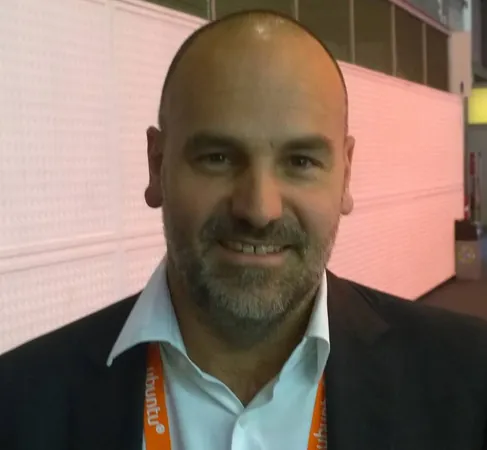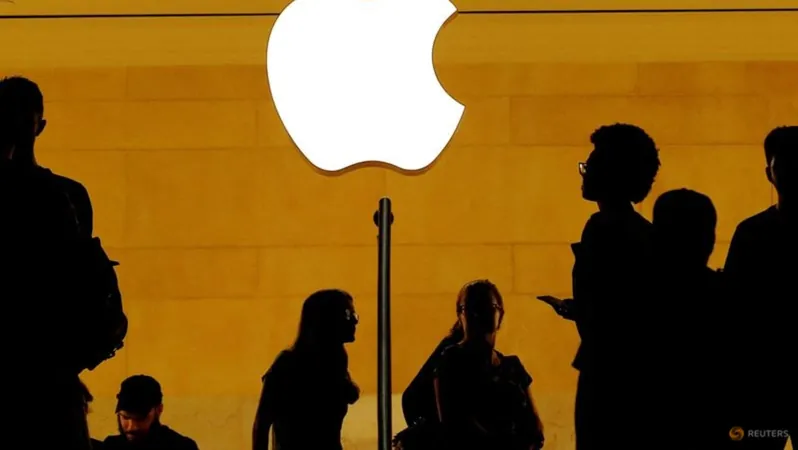
Mark Shuttleworth Reflects on 20 Years of Ubuntu: Lessons Learned and Future Aspirations
2024-11-11
Author: Ming
Introduction
In a candid interview during Ubuntu Summit 2024 in The Hague, Canonical's founder and CEO Mark Shuttleworth opened up about the evolution of the Linux distribution, its triumphs, setbacks, and the valuable lessons gleaned over two decades.
The Backstory of Ubuntu
Starting with a remarkable backstory, Shuttleworth became a digital pioneer when he sold his South African digital certificate authority, Thawte, to Verisign for an astounding $575 million in 1999. This windfall fueled his ambition to transform the Linux landscape by creating a user-friendly version of Debian, ultimately giving birth to Ubuntu.
20 Years of Ubuntu: Reflections
As he reflects on 20 years of Ubuntu, Shuttleworth states, "I just feel grateful. It’s been 20 years of interesting problems with amazing people, keeping me out of trouble for the most part."
Challenges and Regrets
However, the journey wasn't without its challenges. When asked about regrets, Shuttleworth acknowledges that hesitations were among the missteps that led to missed opportunities. In particular, he points to the Ubuntu phone project, which failed to secure sufficient support through its Kickstarter campaign in 2013. "I hesitated to fully commit to our vision, thinking larger companies may know better. That hesitation proved detrimental," he admitted.
Lessons from Unity 8
He also highlighted the shortcomings in the user experience (UX) of Unity 8, which aimed to provide seamless integration across devices. "In hindsight, I should have prioritized engineering quality alongside UX to ensure a robust product." Despite these setbacks, the enthusiasm of the community behind the project continues to inspire him.
Misunderstandings Around Mir
Shuttleworth elaborated on the challenges and misunderstandings surrounding the Mir display server. He framed Mir not as a competitor to Wayland but as a means to facilitate a cohesive experience between differing ecosystems, a bridge for innovation. "Many misconstrued its purpose. Mir was about finding a definitive solution that allows applications from various environments to work harmoniously," he said.
The Future of LXD
Among the recent topics of conversation was LXD, Canonical's container hypervisor. Following the recent fork of the project, Shuttleworth expressed confidence in Canonical's continued direction. He cited the decision to transition LXC into LXD and pursue a service-oriented approach, which has led to renewed growth and commercial interest.
Changing Perceptions of Snap Packages
Finally, Shuttleworth addressed the evolving perception of Snap packages, which are designed to enhance security and update rigor, especially for IoT devices. He noted a shift in user sentiment towards Snap, especially in the latest versions of Ubuntu, citing improvements in integration and functionality. "We started with a focus on security, and now we're working towards providing seamless experiences even when applications come from different ecosystems," he shared.
Conclusion and Future Aspirations
As Ubuntu approaches its 20th anniversary, Shuttleworth is excited about the future and the continued role of the community in shaping its destiny. His journey is a testament to the resilience and adaptability required in the fast-paced world of software development—valuable lessons that he wishes he could share with his younger self. "Keep your vision clear, move confidently, and remember: engineering rigor is as crucial as innovative ideas," he concluded.
This reflective moment not only honors the past but also sets the stage for a promising future for Ubuntu and its expansive community.





 Brasil (PT)
Brasil (PT)
 Canada (EN)
Canada (EN)
 Chile (ES)
Chile (ES)
 España (ES)
España (ES)
 France (FR)
France (FR)
 Hong Kong (EN)
Hong Kong (EN)
 Italia (IT)
Italia (IT)
 日本 (JA)
日本 (JA)
 Magyarország (HU)
Magyarország (HU)
 Norge (NO)
Norge (NO)
 Polska (PL)
Polska (PL)
 Schweiz (DE)
Schweiz (DE)
 Singapore (EN)
Singapore (EN)
 Sverige (SV)
Sverige (SV)
 Suomi (FI)
Suomi (FI)
 Türkiye (TR)
Türkiye (TR)